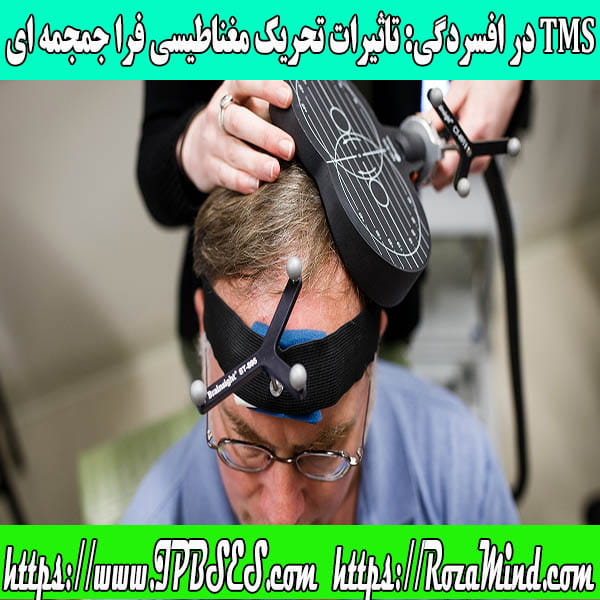پژوهشگران دانشگاه آلفرد، دانشگاه موناش و دانشگاه آدلاید استرالیا به بررسی تاثیرات تحریک مغناطیسی فراجمجمه ای rTMS در افسردگی عمیق مقاوم به درمان و درمان بیماران آن پرداختند.
روش پژوهش rTMS در افسردگی:
- در این پژوهش مداخله ای مقایسه ای، تعداد90 شرکت کننده داوطلب شدند.
- 43 نفر به روش TMS و 47 نفر به روش تحریک امواج تتا TBS آزمون شدند.
- ابزارهای مورد استفاده شامل rTMS، TBS، پرسشنامه افسردگی QIDS، و پرسشنامه خودکشی بک BSSI بودند.
- مداخله درمانی در 4 هفته، هرهفته 5 جلسه صورت گرفت.
- ارزیابی به صورت سری های زمانی خط پایه، هفته اول، هفته دوم و هفته چهارم بود.
یافته های پژوهش rTMS در افسردگی:
- استفاده از rTMS منجر به کاهش 40.6% در علایم افسردگی مقاوم به درمان می شود.
- کاربرد rTMS منجر به 25% بهبودی در بیماری افسردگی مقاوم به درمان می شود.
- درمان با rTMS منجر به کاهش معنادار افکار خودکشی در افراد مبتلا به افسردگی مقاوم به درمان می شود.
راهبردهای کارکردی rTMS در افسردگی:
- به نظر می رسد تحریک مغناطیسی فرا جمجمه ای rTMS برای استفاده در پروتکل های درمانی اختلالات خلقی مکمل مناسبی است.
- استفاده از TMS برای درمان افسردگی با موقعیت کنترل مقایسه نشده مقایسه نشده است.
- ترکیب TMS و دارو درمانی/ روان درمانی برای درمان افسردگی منجر بهبود سریعتر بیماری می شود.
Comparing theta burst stimulation with standard left high frequency transcranial magnetic stimulation in the treatment of depression in a randomized controlled study: A preliminary comparison study
Abstract
Background
Theta Burst stimulation (TBS) is a promising alternative to standard repetitive transcranial magnetic stimulation (rTMS) for treatment-resistant depression (TRD).
TBS treatment is delivered over a much shorter time than rTMS, enabling more patients to be treated with the same resources.
The aim of this preliminary study was to explore the efficacy of an intensive bilateral TBS protocol (BL TBS) compared to a standard rTMS protocol.
Methods
Thirty-two outpatients with TRD were randomized to a standard rTMS protocol and 34 outpatients were randomized to a TBS protocol. Treatment was delivered over two week or four weeks.
Both treatment groups received twenty treatments in total. Patients were assessed at baseline, week 1, week 2 and week 4.
Results
There were no major differences in baseline depression severity between the randomized treatment groups.
There was no significant difference in response and remission rates between the two groups. In the standard rTMS group, 40.6% met criteria for response and 25% met criteria for remission.
These rates were 20.6% and 25.5% respectively for the TBS group.
There was a significant reduction in mean depression scores for both treatment groups (p<0.05); and suicidal ideation decreased significantly in the standard rTMS group.
Limitations
This was not a sham-controlled study, so placebo response rates are not known.
Conclusion
TBS provided clinical benefit, which on most outcome measures did not differ significantly from outcomes with a standard course of rTMS treatment. And It could be advantageous from a clinical, service and patient perspective.
Keywords
Repetitive transcranial magnetic stimulation rTMS, Treatment-resistant Depression, theta burst stimulation Intensive,





s changing climate and the global spread of infectious diseases are threatening human health, agriculture and wildlife buying generic cialis online safe The GDNF expression levels in the animals transduced with the AAV2 S2 GDNF significantly increased with increasing Dox concentration P